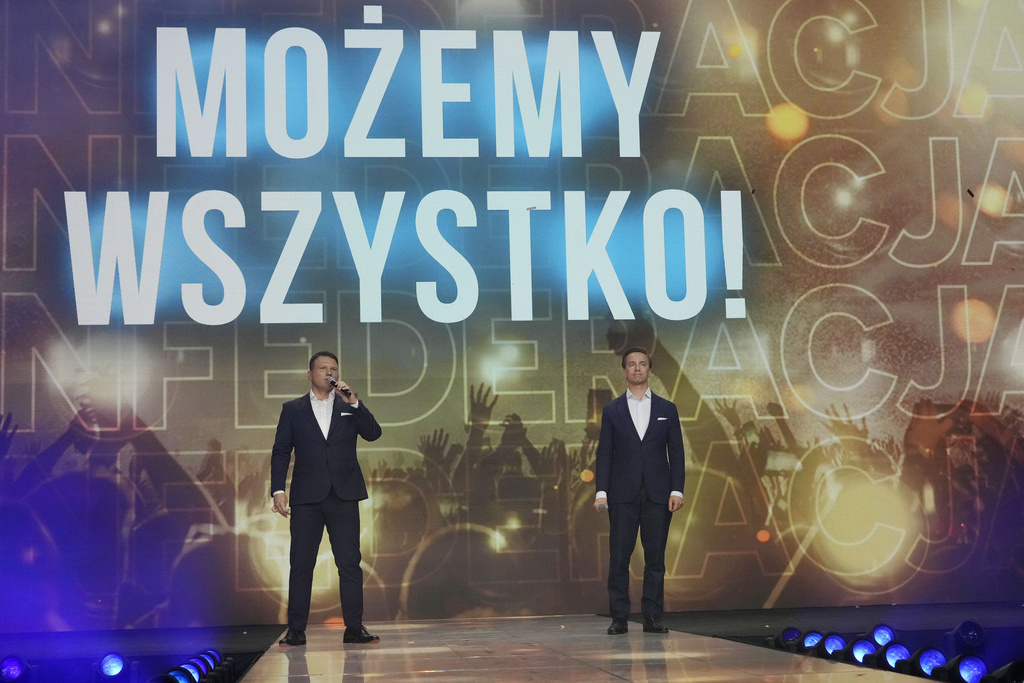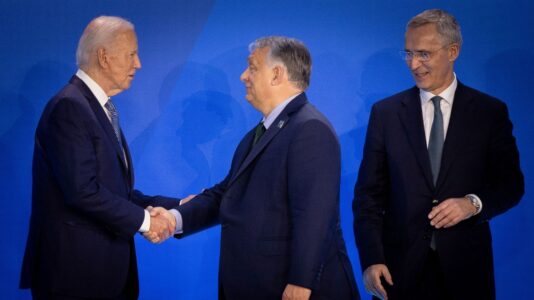Members of Poland’s Confederation party are facing internal divisions in the European Parliament, with different MEPs deciding to join different factions.
Stanisław Tyszka, Marcin Sypniewski, and Ewa Zajączkowska-Hernik have decided to join a group formed by the Alternative for Germany (AfD), while Anna Bryłka and Tomasz Buczek are currently negotiating to join a faction led by Hungarian Prime Minister Viktor Orbán. This split comes after the Confederation secured six seats in the recent parliamentary elections.
Three MEPs from the New Hope party, part of the Confederation, have chosen to join the “Europe of Sovereign Nations” group initiated by the AfD, responding to an invitation from the German right-wing party. Sławomir Mentzen, a leader within the Confederation and president of New Hope, mentioned that they faced a choice between joining this group or having no affiliation at all. Mentzen defended the decision, highlighting that the AfD does not advocate for revising the border with Poland, despite contrary claims in the media
“Of course, the AfD does not want to revise the border with Poland, and if someone believes this because some idiot from their youth wing once wrote that, then I pity their ability to verify the accuracy of information. The AfD is not anti-Polish. It is pro-German,” wrote Mentzen on platform X.
Meanwhile, MEPs Anna Bryłka and Tomasz Buczek are in talks about joining the “Patriots for Europe” group. Bryłka confirmed she would not join the group with the AfD, citing the German party’s stance on Nord Stream pipelines and statements by some of its members that she says contradict Poland’s national interests.
Bryłka expressed her commitment to representing Polish interests in the European Parliament and working “with any European force opposing creeping federalization, uncontrolled mass immigration, and the European Green Deal.”
The sixth MEP from the Confederation, Grzegorz Braun, is reportedly not engaged in any discussions with parliamentary groups, with sources suggesting that these factions are reluctant to include him.
According to media reports, the AfD has also reached out to other Eurosceptic parties across Europe, forming a new faction that has met the required threshold to be officially recognized, with an estimated 28 to 29 MEPs from various member states.
AfD co-leader Alice Weidel mentioned earlier this month that her party may consider joining the Patriots of Europe party in the long term and expressed her support for the new formation.






